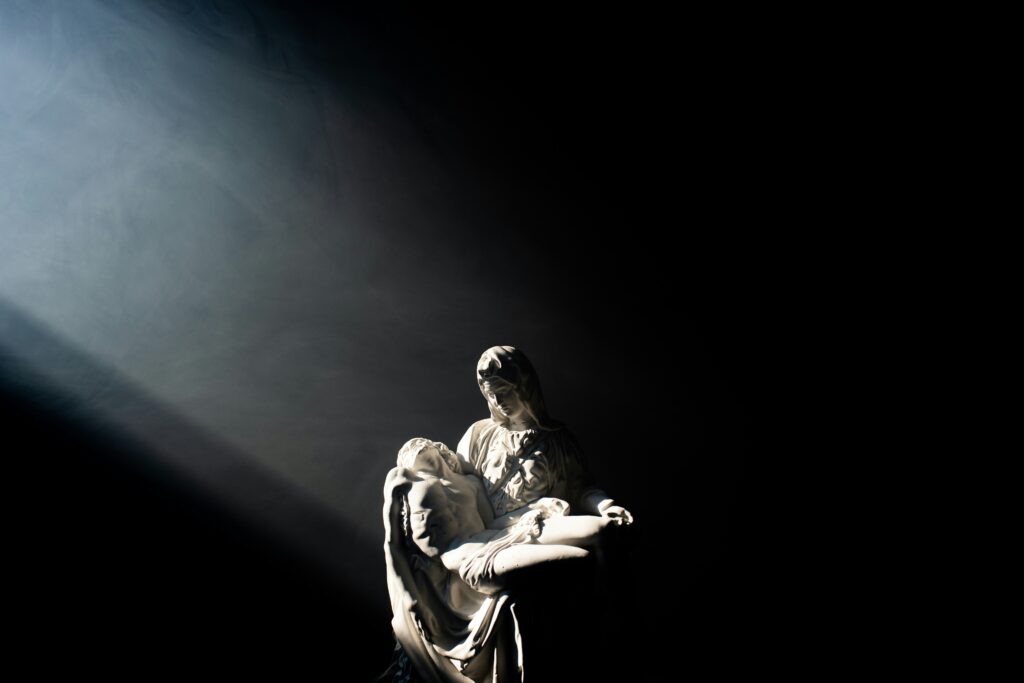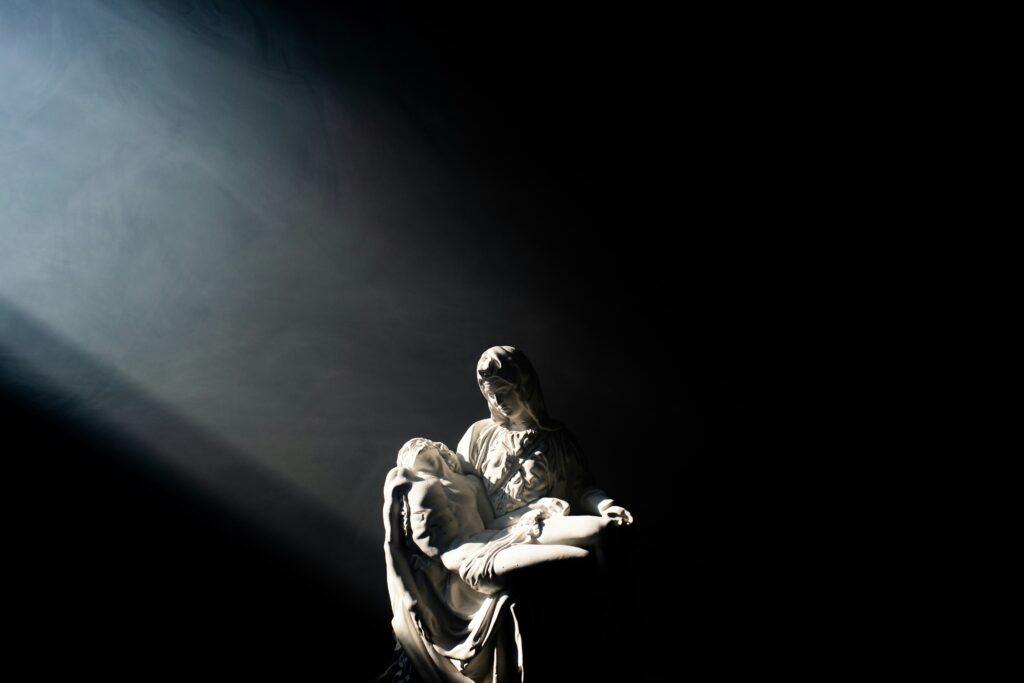Saints In the Catholic Church: 7 Things You May Not Know
Written by catholicradio on May 29, 2024
In the Catholic Church, the word “saint” has two definitions. From the Latin, “sanctus”, “saint” (with a lower case “s”) means holy. All Christians are called to be saints. In his epistles, dozens of times St. Paul refers to the early Christians that live on earth as “the saints”.
“Saint” (with an upper case “s”) refers to:
persons in heaven (officially canonized or not), who lived heroically virtuous lives, offered their life for others, or were martyred for the faith, and who are worthy of imitation.
This means it is believed that a person who has died is not in purgatory, but already experiencing the Beatific Vision, or heaven. Here are seven things you might not know about Saints in the Catholic Church:
1. The Catholic Church Does Not “Make Saints”, But Canonizes Them
There is an official procedure called “canonization” in which someone is declared a saint. This process is authoritative, officially adds a person to the canon, is infallible, and irrevocable.
Neither the Catholic Church nor the process of canonization make someone a saint.
Instead, canonization brings to light what God has accomplished: entrance of a soul into the heavenly kingdom.
2. In the Catholic Church, Basic Requirements Must Be Met To Begin the Process Of Canonization
In order for a diocese to open an inquiry to examine a person’s life, it must be confirmed that:
- a person was Catholic
- that he or she is indeed dead
- five years have passed since the person’s death to ascertain an enduring reputation of sanctity among the Catholic faithful (occasionally exceptions are made if someone was a martyr)
3. Heroic Virtue Is Required To Be A Saint In the Catholic Church
Examination of the life of a candidate for sainthood is conducted by the diocese in which the person lived. The local bishop must determine whether or not the deceased lived a life of “heroic virtue” (or was martyred). This is exemplified by:
The Four Cardinal Virtues
- Prudence
- Temperance
- Fortitude
- Justice
The Three Theological Virtues
- Faith
- Hope
- Charity
If evidence of heroic virtue exists, and if any writings are free from doctrinal error, the candidate is called “Servant of God”.
Next, a Vatican committee looks into the matter and if the case is approved, it is sent to the pope. If the pope also agrees the person lived a life of heroic virtue, the person is elevated to the designation of “Venerable”.
4. Documented Miracles Are Necessary To Be Recognized As A Saint In the Catholic Church
Requiring miracles during the canonization process is necessary. They must be attributed to the intercession of the candidate and to no other person in the communion of saints.
Miracles are events that are beyond the forces of nature,
or beyond what is typical in nature.
One proven and authentic miracle is required for beatification, and a second is required for canonization.
5. The Catholic Church Appoints A “Devil’s Advocate” To Oppose the Cause For Canonized Sainthood
Many people and committees study someone’s life to promote the cause for canonization. However, as the process of examining the cause for sainthood progresses, a Promoter of the Faith, or “Devil’s Advocate”, is appointed.
Since canonization is irrevocable, the Catholic Church makes certain that a person’s life is thoroughly examined. To promote the faith means to also safeguard the church from deception and error. This means a candidate’s life, motives, and character flaws are scrutinized.
6. Canonized Saints In the Catholic Church Are Not Worshipped
The Catholic Church encourages veneration of canonized Saints because they died in a state of grace and are already in heaven. The church teaches that graces are available to those who venerate Saints because they are friends and servants of God, close to Him in heaven.
To venerate a saint means to honor them as one would honor someone on earth. This does not take away from the adoration given to God alone. For more information about this, you may find articles from Catholic Answers or the Bellarmine Forum to be helpful.
Praying to a saint is to ask for his or her intercession, like one would do on earth. Any answers to prayer or graces bestowed are due to the supplication of the saint on a person’s behalf, but all through the power, love, and mercy of Almighty God.
7. The Catholic Church Is Not the Only Religious Institution To Have Patron Saints
A Patron Saint is one who has been assigned by tradition or chosen by the Catholic Church as a special intercessor. There are Patron Saints whose intercession and protection are designated to a society or country, church, place, situation, or vocation/occupation.
Patron saints are honored not only by Roman Catholics, but also by many others, some of which include:
- Anglicans
- Eastern Orthodox
- Greek Orthodox
- Lutherans
- Oriental Orthodox
Learn More About Saints By Listening To Catholic Radio
Our Blessed Mother, followed by St. Joseph, are the most highly revered Saints in the Catholic Church. Saints are heroes of our faith and trustworthy role models.
You will learn more about them when you listen to Catholic radio because their veneration is a tenet of our Catholic faith.
We invite you to listen online to one of our five livestreams, find your local station, or download our free app for Apple and Android.


